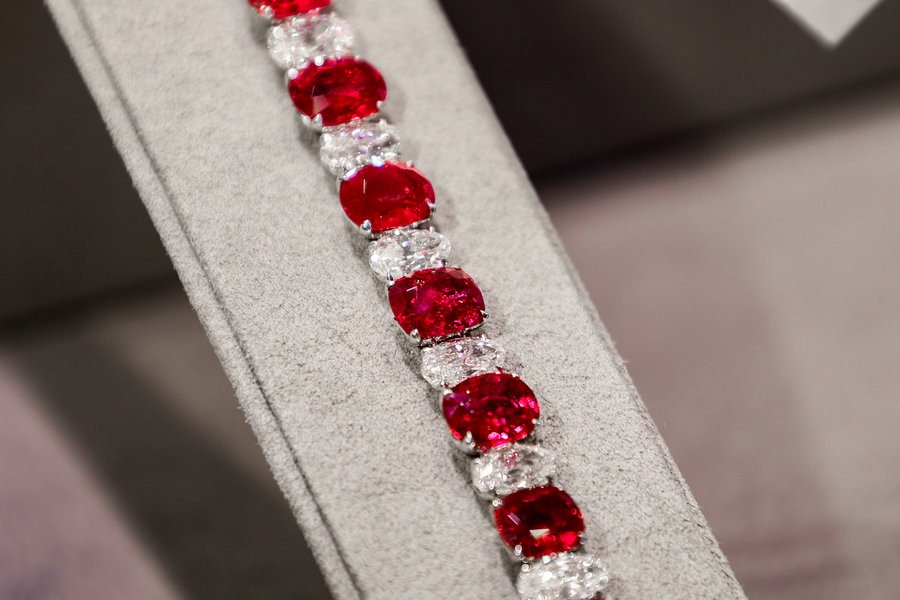Eco-friendly innovations underscore awareness in cosmetics industry


At the 8th China International Import Expo, sustainability took center stage in the beauty and personal care industries. Leading brands showcased breakthroughs in innovative packaging, low-carbon production, and circular utilization, while consumers' preferences for eco-friendly products further underscore the sector's inevitable green transition.
"Many cosmetics, particularly those made by luxury brands, have exquisite packaging. I always felt wasteful when I discarded them," says 35-year-old consumer Lin Na. "Now, more products use recyclable and degradable materials, and some lightweight bottles even shrink after use, which is very convenient. As a consumer, I don't want my purchases to burden the environment."
Her perspective underscores the growing environmental awareness among consumers, a key driver for brands' sustainable innovation.
At the expo, major brands showcased their sustainability achievements, transforming eco-friendly concepts into reality through technological innovation.
In its fifth year of pursuing its "Ambition 2030" sustainability goals, Procter & Gamble reported significant progress at the expo. Over 99 percent of its global electricity is now renewable; seven factories in China are fully powered by green energy; 80 percent of its global product packaging is recyclable or reusable; and water efficiency per unit output has increased by 26 percent since 2010.
"We have long been committed to sustainability and have introduced numerous sustainable packaging solutions at previous CIIEs," says Yang Wanmin, director of supply chain packaging innovation at P&G China. He highlights this year's innovations — OLAY's ProX serum line is now fully recyclable through process improvements; Pantene shampoos feature shorter caps to reduce plastic use; and other brands produced by P&G China use ultra-thin bottles for reduced material consumption and easier recycling.
"Plastic bottles are increasingly being replaced with highly recyclable glass that can be sorted by color in normal recycling loops," Yang adds.
The IPSA brand under Shiseido debuted its all-new 10th-generation ME PRO Essence at the expo. "The bottle adopts innovative Liqui-Form® technology to integrate bottle molding and liquid filling in one step, cutting plastic use by 56 percent and greenhouse gas emissions by 48 percent. This demonstrates our commitment to sustainability," says Toshinobu Umetsu, CEO of Shiseido China and Travel Retail.

IPSA Brand Director Chen Li says, "Sustainability has become an industry consensus, with more brands making efforts in this area. Consumers, especially the younger generations, are enthusiastic about eco-friendly cosmetics and recognize brands' efforts, which also helps us connect more closely with them."
She notes that her brand also upgraded packaging for products like concealer palettes, adding, "More products will allow consumers to feel our sustainable efforts in the future."
Luxury brand Dior showcased "sustainable luxury" with refillable designs. At the expo, core products, such as perfume, eye cream, and lipstick, were featured in refillable versions to extend their shelf life. Additionally, Dior's booth showcased sustainable apparel that adheres to strict eco-standards, from raw materials to production, minimizing its environmental impact.
Beyond product packaging, brands are embracing sustainability throughout the entire value chain. P&G introduced its tongue-and-groove boxes at the expo, inspired by the traditional Chinese mortise-and-tenon structure, to reduce the use of tape and enhance recyclability. Its reusable in-store display boxes have been upgraded from all-paper to plastic-based designs, reducing paper use by over 96 percent, according to Yang. The first-generation recycling display box, introduced at last year's CIIE, is now available in over 900 stores nationwide, with more than 50,000 units in use.
"We aim to use the CIIE platform not only to demonstrate P&G's commitment to consumers and the government but also to encourage industry-wide collaboration. Most of our green packaging solutions showcased since the second and third CIIEs are available for industry use," he says.
Additionally, global luxury group Kering incorporated circular elements into its booth design: plant-based leather made from coffee grounds and bio-based polyester for open areas, recycled ceramic tiles from waste ceramics for workbenches, and booth exteriors designed for reuse in future expos, ensuring 100 percent building material recyclability.
From consumers' eco demands to brands' technological innovations and industrywide circular upgrades, sustainability has become an irreversible trend in the beauty and personal care industries.



































